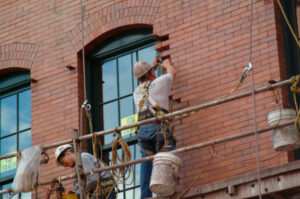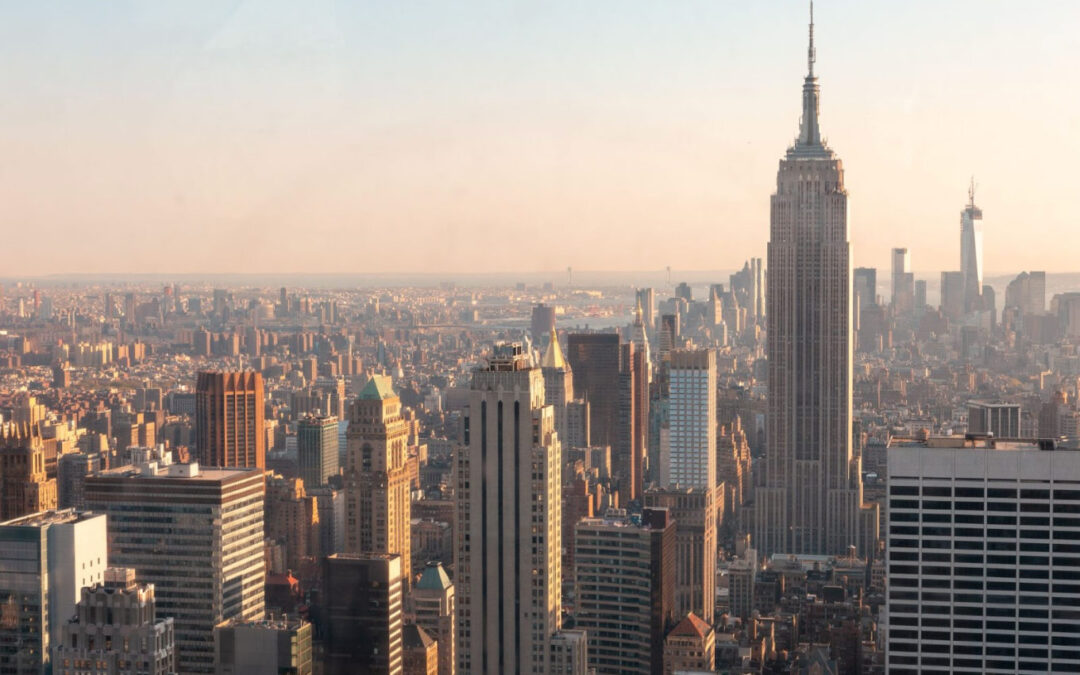New York City is home to numerous very large skyscrapers that dominate their cityscape, but NYC is not the only U.S. city that has a magnificent skyline. However, when regarding building safety regulations, New York City stands out with its Local Law 11.
What is Local Law 11, and why is it unique to the big apple? Learn more about it by reading our article below.
What is Local Law 11?
In 1980, a tragic incident occurred in New York City when a falling piece of masonry killed a pedestrian. This incident, amongst many others, led to the creation of the current regulation, Local Law 11. The goal of the law is to prevent unfortunate events from occurring again.
Local Law 11, also called the Facade Inspection and Safety Program (FISP), is a vital safety regulation unique to New York City’s tall buildings. The law requires buildings more than six stories to have their facades undergo periodic inspection and maintenance by a Qualified Exterior Wall Inspector (QEWI).
Building owners are required to file a technical report with the NYC Department of Building (DOB) once the inspection is completed. Failure to comply with these regulations will result in huge fines and, more importantly, put the general public’s safety at risk.
Why Does Only NYC Enforce It?
New York City’s skyline has numerous tall buildings packed in a dense area, creating a unique set of safety challenges. Strict and specific safety regulations like Local Law 11 are crucial in maintaining the structural integrity of these buildings to ensure public safety.
The main reason why Local Law 11 does not exist in other states is that each state has its own set of regulations. While many other cities in the U.S. have their own safety regulations, none are as detailed and comprehensive as Local Law 11.
 Does Pittsburgh Have Specific Regulations?
Does Pittsburgh Have Specific Regulations?
Even though Local Law 11 does not exist in Pittsburgh, the city still has safety regulations for its buildings. These laws are regulated by Property Maintenance Code. However, unlike Local Law 11, PA Act No.45 regulation is a statewide law that applies to all cities in PA, not just Pittsburgh.
The state law oversees the construction and maintenance of buildings in PA, requiring construction, renovations, and repairs to comply with the Property Maintenance Code.
A variety of topics are covered in the Property Maintenance Code, such as designing, constructing, plumbing, electrical, and structural materials.
 Why Choosing Graciano is Important in This Line of Work
Why Choosing Graciano is Important in This Line of Work
Building safety regulations, such as Local Law 11 and the Pennsylvania Uniform Construction Code, impose strict requirements on building owners to ensure the structural integrity of their buildings. Compliance with these regulations involves using quality materials and qualified contractors for inspection, maintenance, and repairs.
This is where Graciano comes in. With a robust experience in the masonry field and the highest reputation for excellence, we are well-positioned to meet your building maintenance needs. When you choose Graciano, rest assured that all work done on your building is carried out with the highest quality and in strict compliance with relevant safety regulations.
Closing Note
While Local Law 11 is unique to New York City, many other major cities across the United States have safety regulations governing building construction and maintenance. Although these regulations may differ in some ways, they all aim to ensure the safety of buildings and the public.
Whether you need facade restoration, material replacement, or any other aspect of building maintenance, be sure to contact us at Graciano. We’ll make sure to provide you with the best offer out there!
